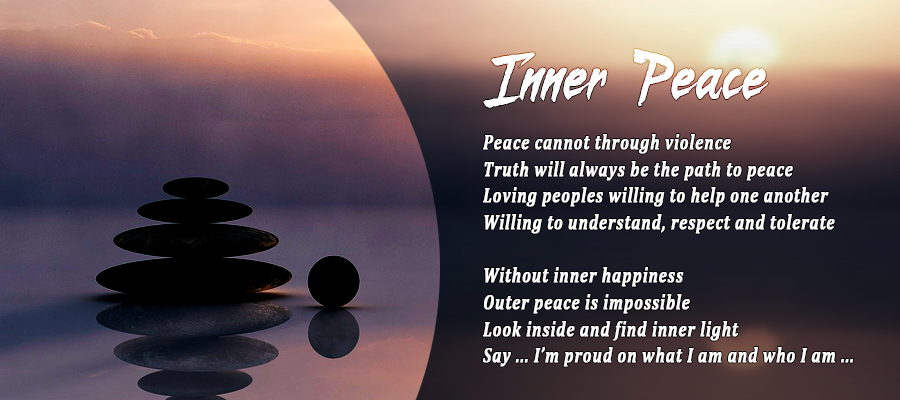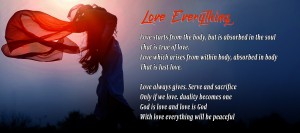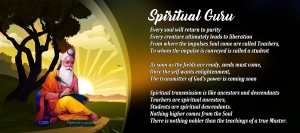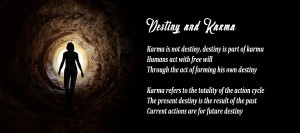Most plans and goals arise from the desire to improve our worldly life; to help our family do well, to progress our careers, increase finances, and maintain and build social connections.
Plans and goals to improve our inner life; to develop a healthy mind, emotional and psychological resilience, and to grow our spirit, are undoubtedly desirable, but more often than not, inner life gets put on the backburner.
Because inner-life progress is less measurable and profitable, we often think of it as a luxury that can be indulged in at a future time, when we have more money, freedom, and time. Sure, the stories we tell ourselves make rational sense, but do they make us feel alive and connected to ourselves, or are they muting the call from a deeper part of us?
The Rational Mind
Science has taught us to think rationally; in linear timelines, and to see ourselves as beings made of separate parts.
My body is not my mind,
my emotions are not my thoughts,
my dreams do not impact my reality.
My inner life has nothing to do with my worldly life.
The rational mind tends to dismiss what’s going on inside of us. It damps-down our most profound heartfelt desires, our imaginations, and our deepest fears.
Humans are a complex, interdependent network of systems, processes, and phenomena. This is what makes us whole.
If we neglect one part, it weakens our entire system. The rational mind is just one part of us, and from this perspective alone we miss the totality of who we are.
A preference for worldly life.
The rational mind prefers worldly life because it is tangible and knowable. It’s made up of structures and elements that we experience directly with our eyes, ears, and all of our senses.
Worldly life keeps us occupied mentally, sensually and socially.
Worldly life motivates us to search for and attach to a social identity and delivers nasty blows when it can’t found or is rejected.
Relying on our rational mind to direct our lives and placing all of our faith in the worldly life is a dangerous way to live.
Sooner or later both let us down and we are shocked to discover a harsh reality; that we’ve been led down a narrow path to a place that is neither caring nor just.
When we are no longer able to change a situation, we are challenged to change ourselves.
Without an inner life, the landing is truly brutal. We feel that we’ve lost absolutely everything. We have no resilience to bear the collapse. We scurry in the dust desperate to find a new place to invest our faith. If you can get over rationalizing away your life and putting most of your focus and faith in things outside of you, you will be eons ahead of the crowd. And you may well avert misfortune.
An Enlightened Era Of Irrationality
Fortunately, we as a civilization are becoming more enlightened around our error of rational, linear, isolationist thinking. We are making discoveries about the interdependence of all things.
Science, medicine, and education are blazing new and exciting paths; recognizing the connections between things that were previously considered to exist in isolation.
We have discovered that emotions are capable of affecting the physical body, that the left-brain-right-brain paradigm is an artificial construct, that gut-health affects every system in the body, including mental health, that meditation is in many medical cases more effective than pain medication, and that purposeful living impacts health and longevity.
Quantum physics has taught us that the past, present, future paradigm is an artificial construct separate from how the universe works.
Many of the above findings are not new, but empirical evidence has helped to make acceptable what mystics, seers, poets, and artists expressed long ago; what our deeper humanity feels to be true.
Time is not a linear flow, as we think it is, into the past, present and future. Time is an indivisible whole, a great pool in which all events are eternally embodied.
Stuck with limited thinking.
And while this is excellent news, despite ground-breaking research, we are still rational thinkers because, from a young age, this has been our training, and this is the world we live in.
We were trained to think habitually, linearly, and logically, and discouraged to think intuitively and imaginatively.
We have learned to dismiss the information that is continuously arising from our intuition, feelings, and imagery; the delicate sparks that invite us to heed the call of inner life.
We need rational thought to function in the world, without a doubt. But we also need to become literate in feeling, intuiting and imagining. These are innate skills that enable us to experience the totality of who we are.
What Is Inner Life?
Okay, but what does it mean to awaken your inner-life and where do you begin?
Depending on your culture and beliefs, inner life has different names: spirit, soul, psyche, atman.
Inner life houses the unchanging essence of you. It’s where your spirit, feeling, intuition, and knowing mind lives. It is where the ultimate purpose of your whole existence is found. The ‘why’ of your life.
While every one of us already has an inner life, it remains unevolved if we are unaware of it.
Finding clarity in a crowded marketplace.
Inner life development brings infinite possibilities. Along with these comes confusion, especially when you start looking out there.
The crowded marketplace of self-development has millions of modalities, philosophies, paradigms, techniques, experts and charlatans.
Where do you turn? And who can you trust?
The road to inner life will be clearer and more certain if the very first person you place your trust in is yourself.
By doing a little work on your own, you can create self-trust. It doesn’t have to be onerous.
All you need to do is to initiate a relationship with your deeper nature through a process that attracts you.
Traditionally, authentic teachers prefer to teach someone who has done at least a little inner work alone. It shows keenness; someone who is serious about their own evolution, and who is self-motivated.
If you do initiate an inner-work process before approaching a teacher, you’ll show up with a degree of self-insight. You won’t expect your teacher to give you all the answers, which in any case, they won’t have.
An authentic teacher will give you a suggested path, and importantly, what to do next. There is a high chance that the teacher will take an interest in your development. They may then initiate you into the next stage of your self-development.
In this way, you are affirming and empowering yourself. You are saying, ‘I have a relationship with myself. I have some knowledge about who I am and what I need. And I want more.’
Through self-initiation, you will have sensed into your strengths and weaknesses and fired up your intuition.
If the teacher happens to be a charlatan, you’ll have a feeling about that; whether they respect you and want to assist your development for a fair exchange, or if they only want your money and the submission of your will.
Balancing Inner Life and Worldly Life
The terrain of your inner-life has no straight lines, and so progress is rarely linear.
Your inner life development is not about creating a perfect plan. It’s about you making a sincere effort to connect with and understand yourself while maintaining your worldly obligations.
The more you respond to your feelings and internal needs the more meaning, deep intelligence, and fulfillment you can inject into your worldly-life.
Taking the time to connect with your inner life is the highest form of self-love, and it improves every relationship you will ever have.





